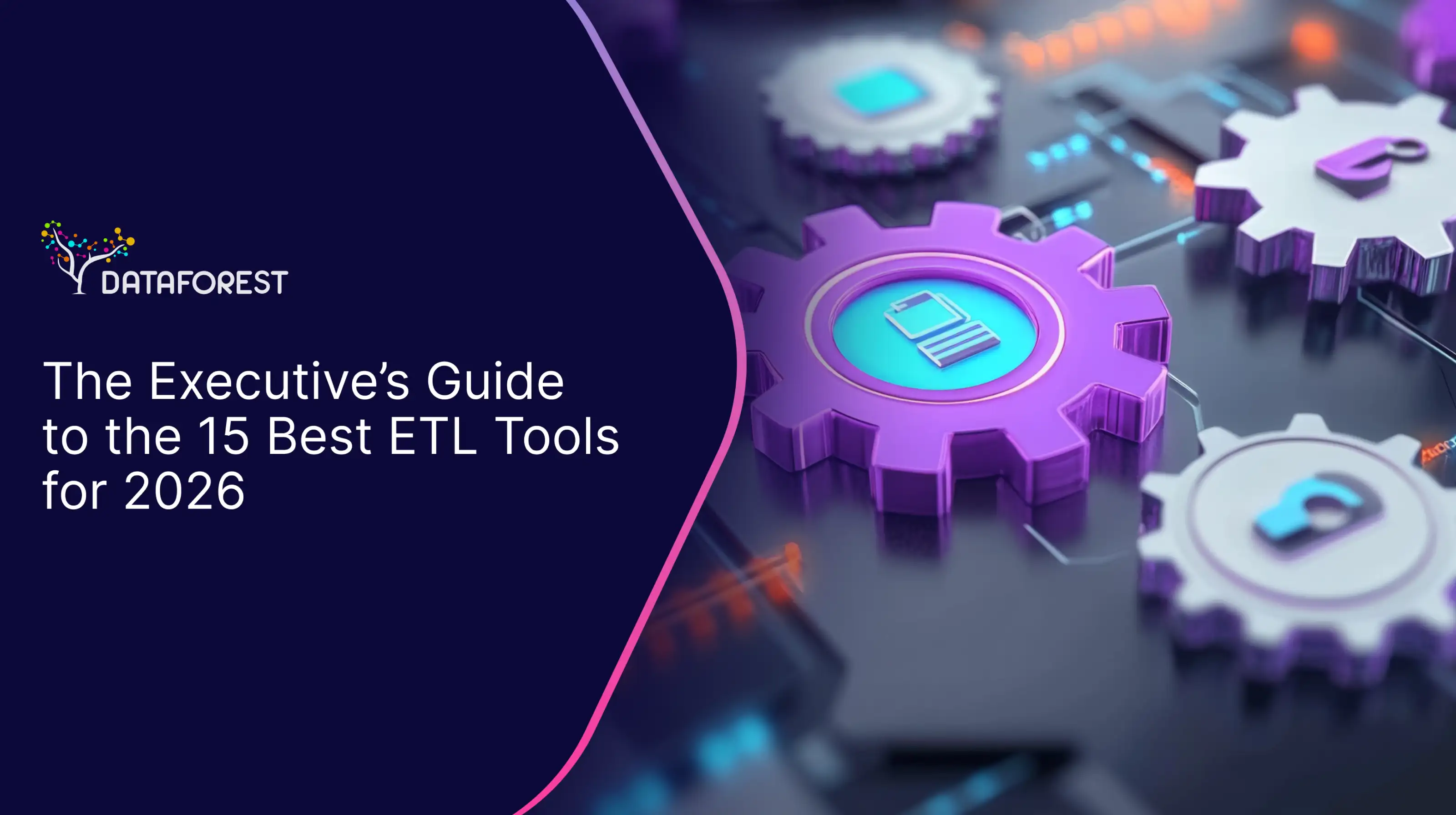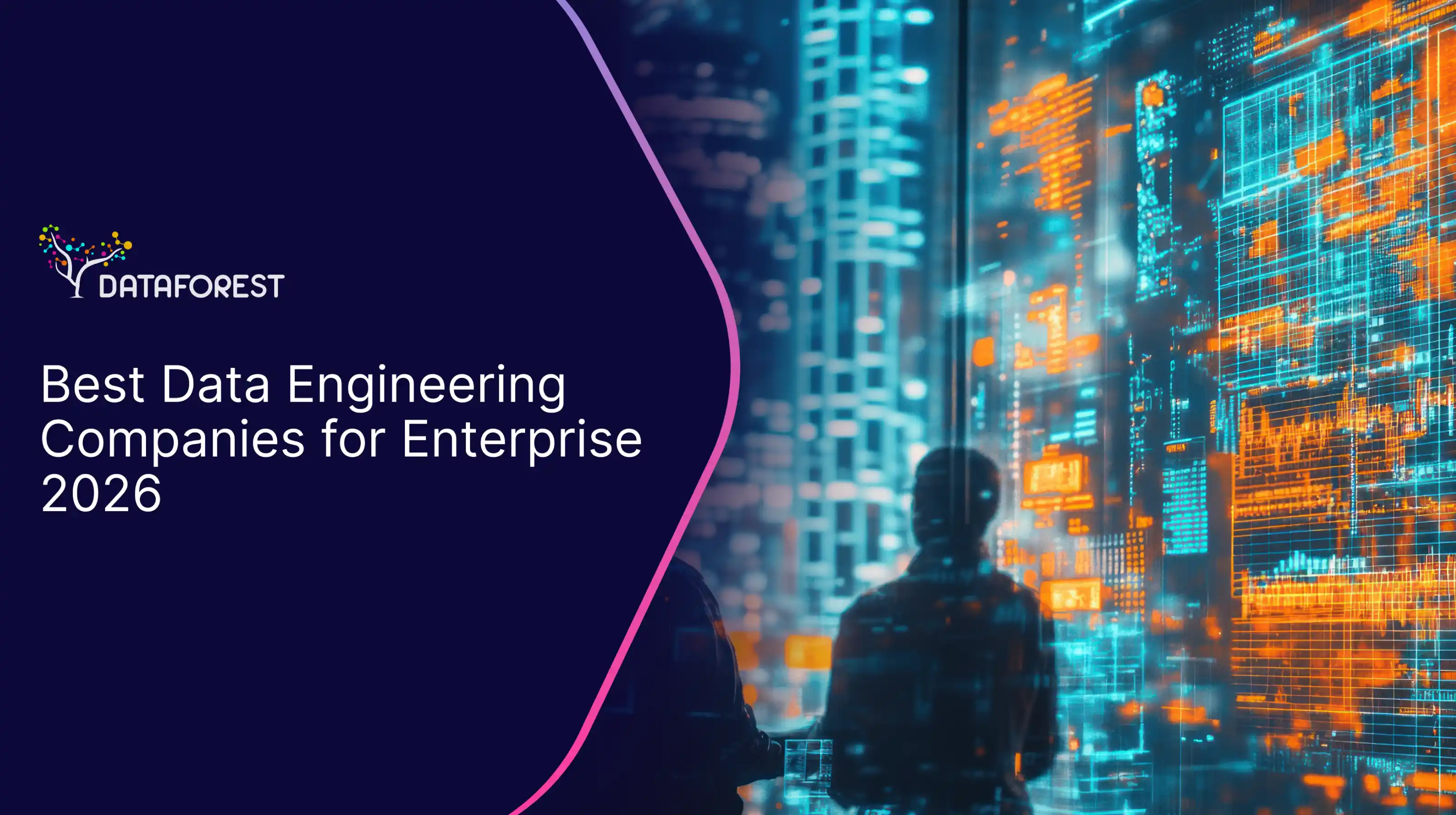In their article “LLM to ROI," McKinsey found that most retailers are stuck in the pilot stage with GenAI. They have messy data, privacy risks, and teams that aren't ready. A few are making it work by picking specific problems, training their people, and building flexible tech that can grow. If this sounds familiar, let's talk about what's blocking you.
LLMs Are Reshaping Online Retail
Online retailers rapidly adopt AI-driven technologies—particularly large language models (LLMs) for retail—to transform their operations. While plenty of exaggerated claims exist in this space, several concrete applications deliver measurable business value. The shift toward LLM in retail isn't about futuristic robots or magical solutions. It's about practical tools that solve specific problems in the retail chain, from product discovery to post-purchase support.
The Real Deal on AI in Online Retail
Personalization: LLM in retail processes customer behavior data to deliver genuinely relevant AI-powered recommendations.
Retail Automation: LLM-based chatbots for customer service handle customer queries, understand context, and provide solutions.
Content Generation: Product content, category pages, and marketing copy are generated quickly.
Searching: AI-powered search understands what customers mean, not just what they type—search rankings improve when queries align with customer intent.
Benefits for Retailers
Cost Reduction
- Customer service costs decrease when e-commerce AI handles routine inquiries.
- Content production becomes more efficient
- Inventory management improves with better demand forecasting
Revenue Growth
- Conversion rates increase with better product discovery
- Average order value rises with relevant recommendations
- Customer retention with AI improves with a better overall experience
Operational Improvements
- Speed to market for new products increases
- Testing and optimization become more data-driven
- Decision-making improves with better analytics
Retail LLM—The Versatile Engine Behind Digital Transformation
LLM in the retail industry functions as a flexible computational framework that can power diverse LLM-in-retail applications through a single underlying technology that processes natural language input and adapts to specific business contexts without requiring separate specialized systems for each function.
AI-powered chatbots and virtual assistants intercept routine customer queries about orders, returns, and product information.
NLP-driven personalization analyzes browsing patterns, purchase history, and contextual signals to show customers products they might want, creating a personalized shopping experience.
LLM use cases in retail include generating product descriptions at a scale that includes relevant keywords and maintains brand voice.
AI-driven dynamic pricing and demand forecasting systems analyze market conditions, competitor pricing, and historical data to set prices that maximize revenue.
Conversational commerce lets customers search for and purchase products through natural speech patterns rather than typed keywords.
LLMs Actually Move the Needle on Retail Metrics
The real value isn't in having AI for its own sake but in using these tools to solve specific business problems that directly impact customer satisfaction and sales metrics.
Enhancing Customer Support
LLM in retail enables round-the-clock customer support by immediately handling routine inquiries and eliminating wait times for basic questions about shipping, returns, and product information, typically representing 60-80% of all customer service volume.
Sentiment Analysis in Retail
Retail LLM analyzes customer feedback across reviews, support tickets, and social media to identify recurring pain points and unmet needs, analyzing customer sentiment to close the gap between perception and reality and preventing the common disconnect between what executives think customers want versus what they say they need, though this requires careful implementation to avoid misinterpreting cultural nuances or sarcasm.
Personalized Recommendations
Unlike older recommendation engines, LLM for retail understands online shopping behavior and browsing patterns, addressing the core problem of showing customers relevant products they need rather than just similar items.
Automated Marketing Campaigns
LLMs optimize personalized marketing campaigns by crafting personalized follow-up messages based on specific abandoned cart items and browsing behavior, solving the fundamental problem of generic remarketing that irritates potential customers.
Roadmap to Implementing LLMs in Retail
- Identify Key Business Use Cases
Don't chase AI for AI's sake. Identify specific business problems with measurable outcomes—like abandoned cart rates, customer-service wait times, or product discovery failures—that LLM in the retail industry can realistically solve with your existing data and infrastructure.
- Selecting the Right LLM Provider
Choose a provider based on concrete requirements: data privacy controls, integration capabilities with your tech stack, pricing that scales reasonably with your usage patterns, and domain expertise in LLM use cases for retail.
- Integrating AI Features Without a Large Dev Team
Leverage API-first solutions and pre-built components rather than building from scratch. Focus on systems that work with your existing product catalog structure and customer data. The technical reality is that most retailers do not need (and should not attempt) custom model training.
- Testing & Optimization for Maximum ROI
Start small and measure obsessively. A/B test retail LLM implementations against your current solutions using hard metrics like conversion rate and customer satisfaction, not vanity metrics. Be ready to pull the plug on implementations that don't deliver clear value.
- Managing Human-AI Collaboration
Establish clear handoff protocols between AI systems and human workers. Define exactly when and how customer interactions transfer from automated to human support. Train your team to work alongside AI tools rather than fighting or fearing them.
LLM Use Cases in Retail
Select what you need and schedule a call.
The Future of the Retail LLMs
The next wave of LLM in retail goes beyond mere automation to actual intelligence. We're moving from systems that simply process data to ones that understand context. Early implementations focused on basic chatbots and recommendation engines. What's coming fundamentally differs: systems that genuinely understand shopping intent, product relationships, and customer behavior patterns across channels.
AI Trends Shaping the Future of LLM in Retail
Multimodal AI: Systems that combine text, image, and voice understanding will dominate.
Retail model fine-tuning: Generic LLMs give way to models specifically trained on retail data.
Physical/digital integration: LLM in the retail industry will power shopping experiences that move seamlessly between channels.
Privacy-preserving personalization: Retail LLM will deliver personalization without excessive data collection.
Adopting AI Early
Early adopters are focusing on:
- Building clean, structured data foundations first. AI can't fix garbage data.
- Developing internal expertise rather than total outsourcing.
- Companies that are getting real value track specific metrics tied to business outcomes.
- Starting small with high-impact use cases, not boiling the ocean.
- Determining when AI makes decisions autonomously versus when human judgment is required
Why Build Your Retail LLM with DATAFOREST
DATAFOREST delivers retail-specific LLM use cases in retail beyond generic AI tools, integrating directly with online sales, inventory, and customer data to drive real-time decisions and automation. From demand forecasting to dynamic pricing and personalized customer interactions, our systems are designed to solve concrete retail problems, not just showcase AI capabilities. Please complete the form and reduce customer service costs with LLMs.
FAQ
How can Large Language Models (LLMs) improve my online store's sales?
LLM in retail drives sales by fixing specific friction points in your customer journey—from making products findable through natural language site search to reducing cart abandonment with timely, relevant assistance—but only if implemented with clean data, clear metrics, and realistic expectations.
What are the key benefits of using AI-powered chatbots in e-commerce?
Modern retail LLM chatbots handle routine inquiries 24/7 without the maddening limitations of older systems, reducing customer service costs while eliminating wait times for simple questions that comprise 60-80% of support volume.
Is it possible to automate product descriptions and SEO with AI?
Yes— LLM in the retail industry can generate decent automated product descriptions at scale when trained on your brand voice and product data, though they require human review for specialized products and won't magically fix fundamental SEO problems like poor e-commerce site structure.
How can AI help reduce cart abandonment and increase traffic conversions?
LLM use cases in retail reduce abandonment by identifying and addressing specific hesitation points—shipping confusion, price concerns, or product questions—with targeted interventions when customers show exit intent rather than generic follow-ups.
What are the best AI tools and platforms for implementing LLMs in e-commerce?
The "best" platform is the one that integrates with your existing tech stack without massive custom development, provides transparent pricing that won't explode with scale, and focuses on LLM for retail implementations rather than generic AI capabilities.








.svg)



.webp)












